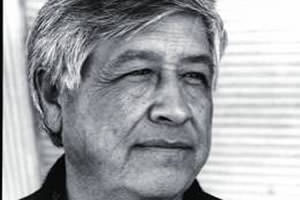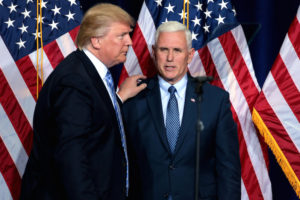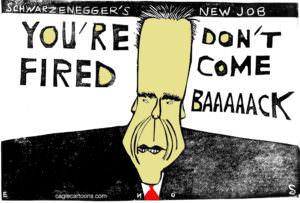A Response From UFW to Marc Cooper
I'm "the heavy-handed UFW press relations chief who had to quietly resign," the one to whom Marc Cooper refers in his latest attack on Cesar Chavez and the United Farm Workers ("Marc Cooper on the Fate of Cesar Chavez's Dream," Truthdig, Nov. 13). Like most of the rest of his article, this claim is false.I'm "the heavy-handed UFW press relations chief who had to quietly resign," the one to whom Marc Cooper refers in his latest attack on Cesar Chavez and the United Farm Workers.
By Marc GrossmanEditor’s note: This essay is a response to Marc Cooper’s book review posted on Nov. 13.
I’m “the heavy-handed UFW press relations chief who had to quietly resign,” the one to whom Marc Cooper refers in his latest attack on Cesar Chavez and the United Farm Workers (“Marc Cooper on the Fate of Cesar Chavez’s Dream,” Truthdig, Nov. 13). Like most of the rest of his article, this claim is false. I’m proud of 40-plus years with the UFW and the more than 20 years I served as Cesar Chavez’s spokesman, speechwriter and personal aide, most of them spent making $5 a week (later raised to $10 a week)—the same “pay” Cesar accepted. I’m also still proud to be associated with the UFW and the farmworker movement as it works hard every day to carry on Cesar’s dream of transforming the lives of farmworkers and other poor Latino working families. Let’s examine just a few of the other falsehoods Cooper offers.
• The UFW began mobilizing in response to the heat deaths of California farmworkers after Asuncion Valdivia was fatally stricken in a Central Valley Giumarra Vineyards Corp. table grape vineyard in 2004. As four more farmworkers died from the heat in 2005, the UFW organized a mass, grass-roots drive involving tens of thousands of Central Valley farmworkers and urban supporters, and pushed reform legislation at the state Capitol. It was this UFW campaign and the union’s bill, by then-Assemblymember Judy Chu, which was moving forward, that convinced Gov. Arnold Schwarzenegger to issue the first state regulation in the nation to try to prevent farm and all outdoor workers from dying or becoming ill from the heat. Reporter Mark Arax, based in the Central Valley, thoroughly documented these events, which he personally witnessed, through a series of stories in the Los Angeles Times in 2004 and 2005. (The UFW and the ACLU are suing the Schwarzenegger administration over failure to enforce the heat regulation and other legal protections for farmworkers. For more, click here and here.)
• The heat-related deaths helped spark a major organizing drive among Giumarra grape workers, 75 percent of whom signed petitions asking for UFW representation that, seven days later, triggered a union election in summer 2005. The UFW barely lost with 49 percent of the vote; it wasn’t “soundly defeated” as Cooper claims. The following year, the state Agricultural Labor Relations Board overturned the election results, citing illegal conduct by company owners and foremen whose gross threats and intimidation against a largely undocumented work force proved effective. The Giumarra election—during which the union went from 75 percent support to 49 percent in several days—is a classic example of the crying need for labor law reform: the Employee Free Choice Act pending before Congress and a similar UFW bill in California that has been approved by the Legislature and vetoed three times by Gov. Schwarzenegger. For more, follow this link.
• Cooper’s claim in Truthdig, parroting Pawel’s allegations in her 2006 L.A. Times series, that the UFW “simply did not organize farm workers” and that there is “barely any significant UFW presence in the fields” is belied by simple facts: The UFW has won recent union contracts protecting thousands of farmworkers, including agreements with California’s largest rose, strawberry and vegetable companies, its biggest winery, 75 percent of the state’s mushroom industry, Washington state’s largest winery and the biggest dairy in the U.S. While the UFW does not represent the number of farmworkers necessary to make the industrywide changes farmworkers deserve, the union represents under contract about the same percentage of the California farm labor work force as is represented by unions across the country in the private sector.
All California farmworkers benefit from recent landmark UFW-won laws and regulations, including protections from extreme heat (Schwarzenegger’s 2005 state standards) and letting farmworkers use mediators to gain union contracts when growers won’t negotiate. The UFW’s historic and broadly backed federal AgJobs bill would let immigrant farmworkers earn the right to permanently stay in the U.S. by continuing to work in agriculture. The UFW’s medical plan has paid out about $120 million in health benefits to farmworkers and its pension fund has paid out approximately $106 million.
Separate nonprofit organizations related to the UFW aid farmworkers and members of other poor Latino working families from California to Texas by having built more than 4,000 units of high-quality affordable housing in four states, bringing innovative and interactive educational Spanish-language programming to half a million daily radio listeners through a nine-station network in three states and helping thousands of farmworker children receive after-school and weekend instruction and tutoring.
• Finally, Cooper appears unaware that claims from 2006—his in the L.A. Weekly and Pawel’s in the L.A. Times—about the farmworker movement becoming “a Chavez family business” and “rampant Chavez family nepotism” were soundly refuted following a thorough, nearly yearlong investigation by the state attorney general’s office unit regulating charitable and nonprofit groups. A 12-page letter from the California Department of Justice concluded, “The [Pawel L.A. Times] articles, on their face, appeared to raise serious questions regarding certain transactions. A closer review revealed that all of the allegations deemed by our office to require investigation were, in the end, found to be without merit.” The entire attorney general’s report can be viewed here.
Cooper has a perfect right to express the hostility he so clearly feels toward the UFW and the Chavez family. But he shouldn’t twist the facts and misrepresent reality in order to do so.
Marc Grossman still serves as a spokesman for the United Farm Workers of America.
Your support matters…Independent journalism is under threat and overshadowed by heavily funded mainstream media.
You can help level the playing field. Become a member.
Your tax-deductible contribution keeps us digging beneath the headlines to give you thought-provoking, investigative reporting and analysis that unearths what's really happening- without compromise.
Give today to support our courageous, independent journalists.





You need to be a supporter to comment.
There are currently no responses to this article.
Be the first to respond.